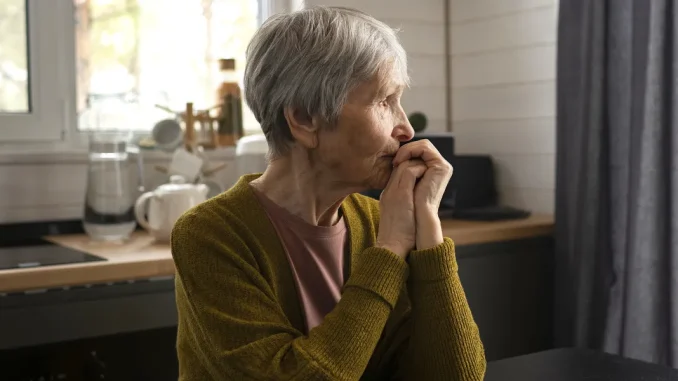
After being married for 42 years, I was engulfed by grief when my husband died. I was adrift—until my stepdaughter, Alexis, invited me to live with her. At first, it felt like a lifeline, a step toward healing. But one sleepless night, I overheard a conversation that shattered everything I believed about love and family.
The grief was suffocating. One moment we were debating whether to plant tomatoes or peppers in our backyard, and the next, I was planning his funeral. His slippers sat untouched by our bed, and his cologne still lingered in the air. But he was gone.
The house, once full of his laughter, felt impossibly silent.
Then Alexis showed up. Despite her mother’s early attempts to turn her against me, Alexis had always been kind.
“Come live with us, Mom,” she said softly, as if it were already decided. “You shouldn’t be alone.”
Her offer broke through my sorrow. I cried—hard, chest-wracking sobs—and clung to her.
“Are you sure?” I asked, worried I’d be a burden.
“You’re family,” she whispered.
Within two weeks, I’d moved into her cozy guest room. Her husband, Joel, was warm and welcoming, even joking, “Mi casa es su casa, Rose.” Even the family dog, Buster, greeted me like I belonged. The teenagers, to my surprise, were curious about my old family stories and asked me to retell them, especially the eerie ones about spirits and family curses.
At night, Alexis would check on me with a cup of chamomile tea. “Don’t worry about anything, Mom,” she said. “I’ll handle your bills, medications—everything.” It felt like a weight lifted off my shoulders. I handed over my insurance documents, even signed a power of attorney form she said was “just in case.” Her organization seemed thoughtful, a way to cope with grief.
But then, one restless night about a month later, I overheard a hushed phone call coming from her office.
“I can’t believe how easy it was,” Alexis whispered. “I’ve got the power of attorney and her documents. Once I sell the house and get the insurance money, it’s over. She’ll never know what hit her.”
I froze. My heart pounded. Then she said something even more chilling: “After that, straight to the cheapest nursing home I could find—Shady Oaks.”
I retreated to my room, hands shaking, realizing she held everything—the documents, the passwords, and the power of attorney. But by dawn, I knew I couldn’t let her win.
Instead of calling a lawyer, I turned to something older—family lore.
The next morning at breakfast, I said casually, “I almost wish I could sell the house and move in here permanently, but I can’t. There’s a family curse, you know.”
She blinked, intrigued. “A curse?”
I told her how, according to family stories, the house must stay within the bloodline or bad things happen. I added how her father once tried to sell it but suffered an accident soon after, cracking three ribs.
“After that, he refused to even think about selling again,” I said, letting the weight of my words sink in.
Though Alexis laughed it off, I noticed her growing unease. Later that night, I spotted her on the back porch, burning sage and muttering. Over the next few days, her confidence gave way to paranoia. She snapped at Joel and the kids, jumped at sudden noises. The seed of fear had taken root.
A week later, I told her I was going back to my own home. “I think I’m ready,” I said lightly, and Alexis, relieved, helped me pack.
Back in my house, I no longer saw grief in the familiar shadows. Instead, I saw justice.
My husband’s slippers are still by the bed, but now they make me smile. It feels like he’s still with me, guarding our home—and reminding me that sometimes, old family stories still carry power.
Leave a Reply